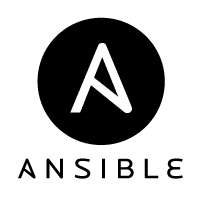Author: David Singer
I am a g33k, Linux blogger, developer, student, and former Tech Writer for Liquidweb.com. My passion for all things tech drives my hunt for all the coolz. I often need a vacation after I get back from vacation....
Best Practices for Security on Your New Ubuntu Server
When security is paramount to your business, a few security implementations can go a long way. In the first article of our Ubuntu security series you'll find effective tactics that can be easily enforced.
Best Practices for Security on Your New Ubuntu Server: Users, Console and Firewall
Thank you for taking the time to review this important information. You will find this guide broken down into six major sections that coincide with Ubuntu’s security policy guide. The major topics we talk on throughout these articles are as follows:
What is Redis?
Redis or “REmote DIctionary Server” is defined as an open source, “key-value” database storage medium, which is additionally known as a data structure server. At its heart, Redis works with key-value pairs and stores data in a location that’s easily referenceable by two specific values. These key-value associations are usually a set of two linked data entries which are made up by a key, which is a unique identifier for a type of data and, the value, which can be either the particular data that is identified or, an indicator to the location of that data.
How to Access Windows Firewall and Change Ports
A firewall is a program installed on your computer or a piece of hardware that uses a rule set to block or allow access to a computer, server or network. It separates your internal network from the external network (the Internet).
Install the LAMP Stack Using Tasksel on Ubuntu 16.04
There are multiple ways of installing software on Debian based systems like Ubuntu and Mint. Tools like apt, apt-get, aptitude and/or synaptic are usually used to install single applications into the desktop editions of those OSes. Alternatively, Tasksel is a command line app for installing a “group” of related packages onto a server. Tasksel is not installed by default on the desktop editions of the ‘nix’ versions that contain the above-mentioned package managers but, it is installed on later versions of Debian and Ubuntu server editions.
What is Kubernetes RBAC Authorization
What is RBAC?
Kubernetes Role-Based Access Control or the (RBAC) system describes how we define different permission levels of unique, validated users or groups in a cluster. It uses granular permission sets defined within a .yaml file to allow access to specific resources and operations.
How to Use Ansible

Ansible is an easy-to-use automation software that can update a server, configure tasks, manage daily server functions and deploys jobs as needed on a schedule of your choosing. It is usually administered from a single location or control server and uses SSH to connect to the remote servers. Because it employs SSH to connect, it is very secure and, there is no software to install on the servers being managed. It can be run from your desktop, laptop or other platforms to assist with automating the tedious tasks which every server owner faces.
Kubernetes 101: A How To Tutorial
What is Kubernetes?
The name Kubernetes has its origins from the original Greek term for helmsman or pilot. Kubernetes, or ‘k8s’ (pronounced “Kate’s”) as it’s sometimes referred to, is an open-source software tool that was originally created by Google and is now being maintained by the Cloud Native Computing Foundation. Kubernetes is used for arranging and coordinating containers that an application needs to run into easy to handle groups.
How To Install Docker on Ubuntu 16.04

Docker is an open-source software tool designed to automate and ease the process of creating, packaging, and deploying applications using an environment called a container. The use of Linux containers to deploy applications is called containerization. A Container allows us to package an application with all the parts needed to run an application (code, system tools, logs, libraries, configuration settings, and other dependencies) and sends it out as a single standalone package deployable via Ubuntu (in this case 16.04 LTS). Docker can be installed on other platforms as well. Currently, the Docker software is maintained by the Docker community and Docker Inc. Check out the official documentation to find more specifics on Docker. Docker Terms and Concepts.
VPS Server Space/Disk Quota
The term “server space” refers to the amount of disk space that is available on your server’s hard disk drive. This space varies according to server type, hosting plan and possibly by additional services that are set up and available on your Liquid Web account.
Our Sales and Support teams are available 24 hours by phone or e-mail to assist.

